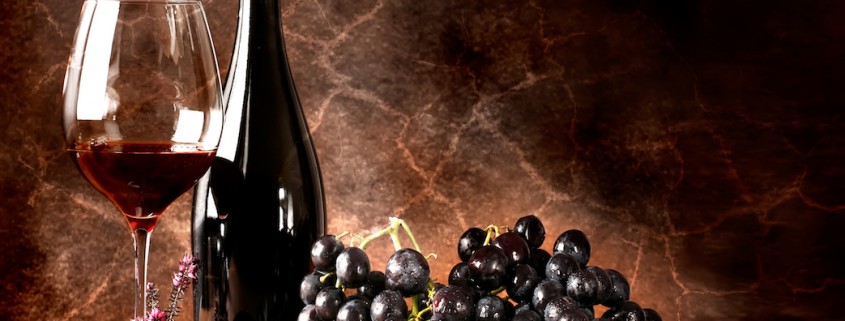What is Natural Wine?
For the past few years, natural wine has been pegged as the “the next big thing” in the wine world. But natural wines haven’t had their moment in the spotlight. In the first two months of 2016, there has been a lot of coverage and discussion of natural wines, as they seem to be making more of push nationally. Will 2016 be the year of natural wines? Will 2015’s Brosé be replaced by Bro Naturel? Here’s what you should know about natural wine if you’re contemplating putting it on your menu.
What is Natural Wine?
Natural wine is a production style that promotes a philosophy of winemaking.
The term doesn’t have a legal definition, but is used to differentiate organic and biodynamic wines. Organic and biodynamic wines are both considered natural, but they are not the same. Confused, yet?
In simple terms, natural wines are made with minimal processing and chemicals. Grapes are grown without the aid of pesticides. Wine is produced without the use of chemical additives. Production techniques used to ensure consistency in large batch wine production are dropped in favor of unadulterated wine flavors.
What are the Benefits of Natural Wine?
For some, the attraction to natural wine is driven by ideology. There isn’t an exact science, or law, regarding natural wines. But the processes deployed to make natural wine making are built on ideas of simplicity, organic, eco-friendly, and consumer conscious production.
There are many who claim that removing chemicals and certain processes of wines production allow the flavors of grapes, vineyards, and terroir to speak for themselves. It can be seen as a mark of high craftsmanship.
Why Should I Sell Natural Wine?
The ideology behind natural wine practices might match your own ethos as a wine seller.
If your restaurant has a progressive wine program that focuses on small winery production, unique styles, or is concerned with vineyards and terroir, natural wines will fit into your program. Selling natural wines can give your customers a unique experience.
What is the Market like for Natural Wine?
There is also a growing market of wine drinkers whose consumer practices reflect the tenets of natural wine making.
The simple, natural production of organic or biodynamic wines wine is a huge selling point for drinkers who favor a health conscious lifestyle, or small batch production built on quality instead of quantity.
This production style yields different results between batches. Without processes in place to make sure each batch or bottle tastes the same, natural wine boasts unique flavors within a portfolio that you can’t find from other winemakers.
The ethos of natural wine production is similar to that of craft or micro-brewing and distilling. Natural wine sellers should target the craft beer and spirits demographic who would see these wines as an obvious extension to their beverage options.
Wild ales, sours, and naturally fermented beers have become much more popular in the last year. Those natural flavor profiles are also found in these wines.
Organic Wine
Organic wine is a certified style of production in the many regions of the word. The term is legally relevant to the methods of farming and production. Organic farming laws are complex and can differ between country. But the global market is making it easier for producers who honor organic production.Though Europe and the United States have slight differences in their organic regulations, both regions can now trade products labeled organic in either region, as long as they have met the proper regulations for organic production in their region of origin.*
Organic wine is produced in accordance with organic food laws. It doesn’t allow for chemical fertilizers, pesticides, and imposes restrictions on types of yeast used.
Biodynamic Wine
Biodynamic wine is produced organically and under the methods of biodynamic farming. This farming style is a unique way of treating land throughout the entire farming process. This method of farming is a holistic and slightly mystical niche of farming. The practices can sound bizarre to the uninitiated. Seriously, look into biodynamics farming.
Will Natural Wine become 2016’s Hottest Trend?
Probably not.
The biggest hurdle to clear for natural wine producers is that there is just too much confusion surrounding the term. Wine experts can’t even agree on what natural wine is.
Without people being able to talk specifically about natural wines, it isn’t likely that it will catch on with the same fervor that led to huge sales increases for sparkling wine or craft beer.
A guest could belly up to your bar and order a rosé and have reasonable expectations for what it will taste like, and what the experience of drinking it will be. The same can be said for IPA beers. That style helped solidify the craft beer market as a competitor against macrobrewed beer.
But, as many critics of natural wine attest, the inconsistent flavor profiles of naturally produced wine may attract some consumers, but it doesn’t lend itself to broad appeal.
Natural wine has an audience. But it will continue to be a niche market.
* A previous version of this article stated that the European Union did not allow for wine to be labelled “organic.” That ruling was changed in 2012. EU-produced wine can now be labeled organic if production meets the proper standards.
- 5 Fall Cocktails to Capture the Flavors of Autumn - September 26, 2018
- How Restaurants Can Ignore Sales and Increase Profits - May 9, 2018
- 2018 Spring Wine Trends - April 18, 2018









